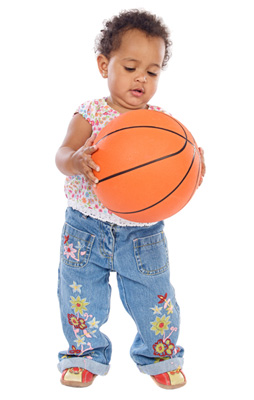What to Expect as Your Child Grows:
Well Child Care at 15 Months
Discipline and Temper Tantrums
- Toddlers start to have temper tantrums around this age. Trying to reason with or punish your child may actually make the tantrum last longer. It is best to make sure your child is in a safe place and then ignore the tantrum. You can best ignore it by not looking directly at your child and not speaking to her.
- Use diversion and substitution whenever you can.
- Praise your child for behaving well.
- Let your child choose between two good options when deciding between different foods, books, or games.
Reading and Electronic Media
- Reading to your child should be a part of every day. Choose books with interesting pictures and colors. Children at this age may ask to read the same book over and over. This repetition is a natural part of learning.
- Children this age get no benefit from watching television.
Dental Care
- After meals and before bedtime, clean your toddler’s teeth.
- You may want to make an appointment for your child to see the dentist for the first time.
Safety Tips
- Choking and Suffocation
- Keep plastic bags, balloons, and small hard objects out of reach.
- Use only unbreakable toys without sharp edges or small parts that can come loose.
- Cut foods into small pieces. Avoid foods on which a child might choke (popcorn, peanuts, hot dogs, or chewing gum). - Fires and Burns
- Keep lighters and matches out of reach.
- Don’t let your child play near the stove.
- Use the back burners on the stove with the pan handles out of reach.
- Turn the water heater down to 120° Fahrenheit. - Car Safety
- Never leave your child alone in the car.
- Use an approved toddler car seat correctly and wear your seat belt. - Pedestrian Safety
- Hold on to your child when you are around traffic.
- Supervise outside play areas. - Water Safety
- Never leave an infant or toddler in a bathtub alone—NEVER.
- Continuously watch your child around any water, including toilets and buckets. Keep lids of toilets down. Never leave water in an unattended bucket. Store buckets upside-down. - Poisoning
- Keep all medicines, vitamins, cleaning fluids, and other chemicals locked away.
- Put the poison center number on all cell phones.
- Buy medicines in containers with safety caps.
- Do not store poisons/chemicals in drink bottles, glasses, or jars.
Smoking
- Children who live in a house where someone smokes have more respiratory infections. Their symptoms are more severe and last longer than those of children who live in a smoke-free home.
- If you smoke, set a quit date and stop. Set a good example for your child.
What to Expect at This Visit
- At this visit, most children will receive DTaP, IPV, and Hib. It is usually given in a combination vaccine.
- Children over 6 months of age should receive an annual flu shot.
- We will attempt to check your child’s vision and hearing. Early detection and prompt treatment is the key to correcting problems and avoiding lifelong impairment.



